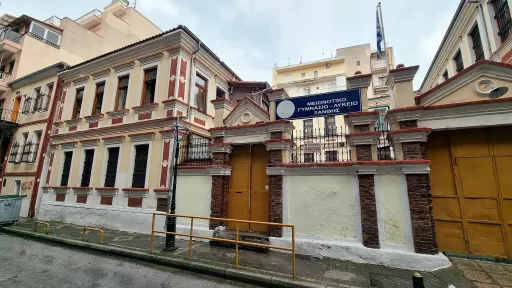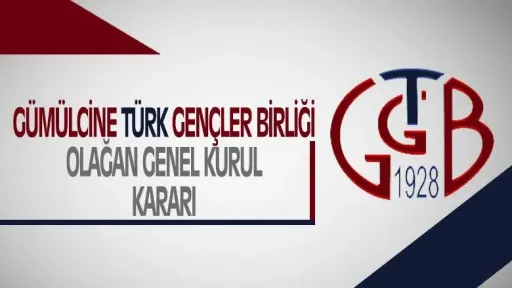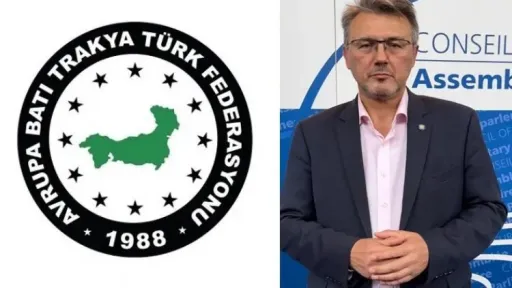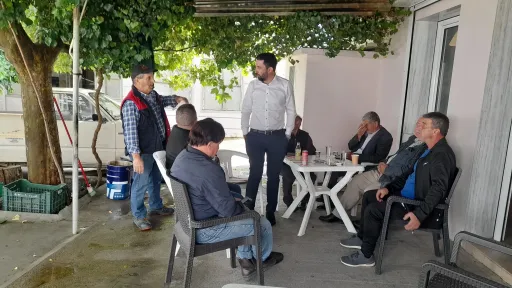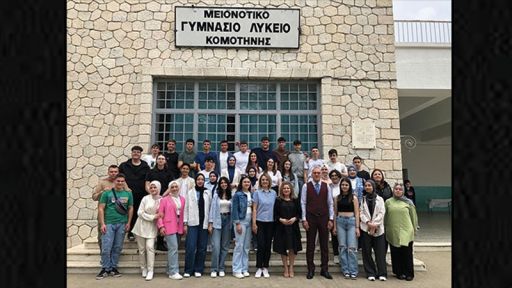Kosmidou issues an article on minority education
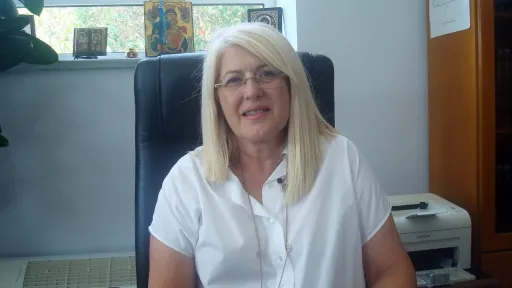
It was noteworthy that the letter sent to the press under the title "Five facts about minority education" was prepared in Turkish and Greek.
It was observed that Kosmidou, the Acting Region Director of Education, in his article, in which he felt the need to explain some issues about minority education, did not go much beyond the views of the state regarding minority education.
In his letter, Kosmidou gave information on the state and minority schools operating in the region of Western Thrace and the number of students studying in these schools, the issue of closed schools, the number of students and classrooms in state and minority schools, the expenses of minority schools and the money spent from the state budget for transported education.
Referring to the issue of closed schools in his article, Kosmidu argued that in fact the state should close more minority schools and that the closure of fewer schools was a privilege granted to minority education.
Referring to the programme "Education of the children of the Muslim minority in Thrace" known as Frangoudaki-Dragona in his article, Kosmidu once again admitted the fact that tens of millions of euros were spent on this programme, which was criticised many times by the minority.
In his article, Kosmidu did not touch upon the educational demands of the Western Thrace Turks and especially did not mention the building problem in the Xanthi Minority Secondary School and High School where the problem is still unsolved.
The article signed by Meri Kosmidu, in which the demands of Western Thrace Turks regarding minority education are ignored and the state's actions regarding minority education are presented as a great favour, is as follows
Five facts about minority education
First fact
In Thrace, 311 public primary schools are in operation and currently 15,250 pupils (out of 16,455 pupils in 2020) are studying in these schools, irrespective of religion. At the same time, in accordance with the provisions of the Treaty of Lausanne and the relevant educational protocols, a total of 90 minority primary schools are in operation in Thrace, 47 in the Rhodope region, 34 in the Xanthi region and 9 in the Evros region, with 3,255 students (out of 4,542 students in 2020).
Second fact
As in other parts of the country, the population of our region is decreasing. Accordingly, the number of students is also decreasing. As it is known, without students, there can be no school. Therefore, schools with less than a critical number of students are merged in order to have the minimum number of students required. Because only in this way can schools fulfil all the needs of their students. An exception to the general rule may apply if and only if geography leaves no other choice (e.g. on islands or in isolated mountain settlements). This process has been recognised since the 1980s and can cause normal reactions in the regions where it is applied. It is not a pleasant situation for anyone, because the cessation of the operation of a school and its merger with another school causes practical problems for parents and teachers. Sometimes it may be regarded as a symbolic recognition that a small village no longer has sufficient population. However, it is not the fault of the Directorate of Primary Education that a village does not have enough children. As in other parts of Greece, the reaction to the merging of schools lasts for a year, that is, until parents realise that this practice is ultimately a positive situation for their children.
Third fact
Minority education enjoys many privileges. For example, for state schools the limit for suspension of school activities is 15 pupils (with one teacher per class), while for minority schools the limit is 9 pupils (with two teachers per class). Minority schools not only operate with twice as many teachers as public schools, but are further strengthened with more teaching staff. Thus, many minority schools are still in operation when they should have been suspended. At the same time, if we compare the minority schools with the state schools, which face a shortage of pupils, we clearly see that the minority schools operate with more classes. For example, in Likion Minority Primary School (with 43 pupils), the first grade operates with only two pupils (if it were a public school, the first grade would have to be combined with the second grade). In the Minority Primary School in Chrysa (44 pupils), the first class operates separately with 4 pupils and the second class with 5 pupils (again, if it were a public school, the classes should have been combined).
Fourth fact
Due to the preferential treatment of minority schools, the activities of 19 state schools were suspended in 2023, while at the same time the activities of only 9 minority schools were suspended. If there was equal treatment between state and minority schools, the activities of 38 minority schools should have been suspended, not just 9. The ratio of state and minority schools in the region is also illuminating in this respect. In the Xanthi region there are 33 state primary schools with 5,185 pupils (average number of pupils per school is 157) and 34 minority primary schools with 1,388 pupils (average number of pupils per school is 41). In the Rhodope region there are 25 public primary schools with 3,268 pupils (with an average number of 131 pupils per school) and 47 minority primary schools with 1,603 pupils (with an average number of 34 pupils per school). In the Evros region there are 49 public primary schools with 6,172 pupils (with an average number of 126 pupils per school) and 9 minority primary schools with 264 pupils (with an average number of 29 pupils per school). Seventy per cent of the minority schools in Thrace are small minority schools (more specifically 62% of the minority schools in Xanthi region, 75% of the minority schools in Rhodope region and 78% of the minority schools in Evros region are small minority schools). On the other hand, only 7 per cent of public schools are small public schools.
The fifth truth
The Greek State fully covers the transport costs of pupils and the running costs (including cleaning) of minority schools. However, this funding is administered by the respective councillor committees, whose members are elected (and elected) by the parents. This also has a clear impact on the equipment of minority schools, ultimately making some minority schools superior to state schools in terms of equipment. For example, the 1st Minority primary school of Komotini (10 classes) has 12 interactive smart boards, while the 4th State primary school of the same town (12 classes) has just received its first interactive smart board.
As a result, given that the average number of pupils per school in minority schools is 35 pupils (while the average number of pupils per school in state schools is 147), it is clear that minority education in Thrace has been overfunded for decades. For example, in the academic year 2021-2022, the total expenditure of minority schools was 3,800 euros per student, while the total expenditure of state primary schools in Thrace was 3,200 euros per student. In all this, tens of millions of euros of the "Education of the children of the Muslim minority in Thrace" programme, known as Frangoudaki-Dragona, should be included.
Greece has not only fully respected the Treaty of Lausanne and its educational protocols, but has also created an impressively privileged framework of support for minority education that the minority deserves. For example, the payment of the salaries of teaching staff working in minority primary schools is not actually an obligation of Greece. Nevertheless, the Greek State pays the salaries of teaching staff working in minority primary schools. In this way, the Greek State has relieved parents of a heavy financial burden that would have prevented them from sending their children to minority schools.
In democratic societies it is perfectly legitimate that there is no general agreement on future education policies. But the debate needs to be based on real evidence... The persistent denial of some people raises questions about the real motivations behind their positions. But for us teachers, it is only the children and their future that matters. Therefore, we have to offer our children the best environment in which they can develop their skills and talents, whether in a state or minority school, respecting the identity of the pupils and our country, which provides a future of democracy and prosperity for all its citizens within the European Union.


